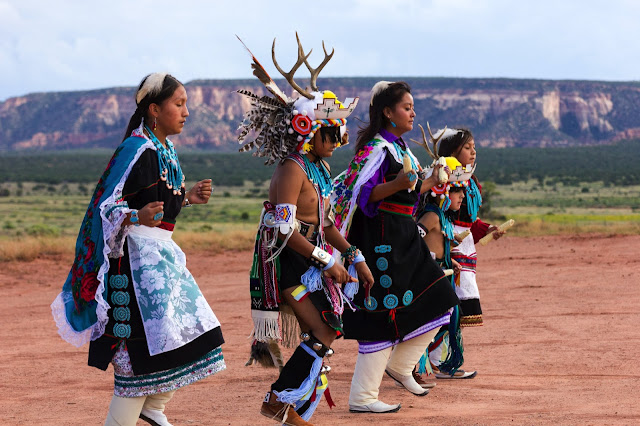Montana Taxpayer Questions Cost of Battling Native Voting Rights
Published in Indian Country Today in 2013. For more on topics like this, see my book, American Apartheid: The Native American Struggle....
For several months, Montana counties have been shelling out taxpayer dollars to fight a Native voting-rights lawsuit—Wandering Medicine v. McCulloch—and William Main, seen here, wants to know why. A taxpayer himself and former chairman of Fort Belknap Indian Community, he thinks other Montanans will also want to learn why they’re fighting a suit that may end up costing hundreds of thousands, or even a million dollars.
To that end, Main has submitted advertisements to local newspapers in Blaine County, Rosebud and Big Horn counties. The three jurisdictions ended up in court after they refused prior to the 2012 election to set up one satellite early-voting station each on the Fort Belknap, Northern Cheyenne and Crow reservations, respectively. Main has also demanded related financial records from local Blaine County.
“There was no public hearing on whether this legal battle was advisable,” said Main, who listed the numerous taxes he pays—including property, income, gas, tobacco and more. He called the counties’ decision to fight the lawsuit “damn foolish,” especially since the cost of the voting stations was minimal. In Blaine County, he said, Fort Belknap offered space in a newly renovated, internet-ready courthouse, and a voting-rights group, Four Directions, agreed to pay other costs.
Main also noted that all three counties have already lost similar Native voting-rights suits. “Blaine County went all the way to the Supreme Court and lost.” To top it all off, Main said, the U.S. Department of Justice has already weighed in twice on the side of the Native voters—“with both barrels.”
The counties’ lawyer, Sara Frankenstein, of Rapid City, South Dakota, agreed with Main in one regard, calling the expenditures of taxpayer funds a “travesty.” However, she disputed Main’s reasoning. “The plaintiffs are unlikely to win,” she said. “They should have gone to the legislature to obtain what they wanted.” That’s because satellite voting is not allowed in Montana, and only the legislature can remedy that, according to Frankenstein.
A statement that satellite-voting offices in the state already existed, so additional ones were feasible, issued by Steve Bullock in 2012, while he was Montana’s attorney general, was simply one lawyer’s opinion, Frankenstein said. “He happened to be Montana’s lawyer at the time. I’m now the counties’ lawyer. We have different opinions.”
In any case, the suit is now before the Ninth Circuit Court of Appeals, which sits in San Francisco, and it will decide, said Frankenstein.
“There’s another thing no one has ever mentioned,” said Main. “The early-voting satellite office we wanted would have helped tribal members vote. But it would also have served non-Native voters in our part of the county; many told us it would be a real convenience for them as well.”
Said Main: “People around here are concerned about taxes and worried about government wasting money. They will be upset when they learn the full story.”
Text c. Stephanie Woodard; photograph c. Joseph Zummo.
For several months, Montana counties have been shelling out taxpayer dollars to fight a Native voting-rights lawsuit—Wandering Medicine v. McCulloch—and William Main, seen here, wants to know why. A taxpayer himself and former chairman of Fort Belknap Indian Community, he thinks other Montanans will also want to learn why they’re fighting a suit that may end up costing hundreds of thousands, or even a million dollars.
To that end, Main has submitted advertisements to local newspapers in Blaine County, Rosebud and Big Horn counties. The three jurisdictions ended up in court after they refused prior to the 2012 election to set up one satellite early-voting station each on the Fort Belknap, Northern Cheyenne and Crow reservations, respectively. Main has also demanded related financial records from local Blaine County.
“There was no public hearing on whether this legal battle was advisable,” said Main, who listed the numerous taxes he pays—including property, income, gas, tobacco and more. He called the counties’ decision to fight the lawsuit “damn foolish,” especially since the cost of the voting stations was minimal. In Blaine County, he said, Fort Belknap offered space in a newly renovated, internet-ready courthouse, and a voting-rights group, Four Directions, agreed to pay other costs.
Main also noted that all three counties have already lost similar Native voting-rights suits. “Blaine County went all the way to the Supreme Court and lost.” To top it all off, Main said, the U.S. Department of Justice has already weighed in twice on the side of the Native voters—“with both barrels.”
The counties’ lawyer, Sara Frankenstein, of Rapid City, South Dakota, agreed with Main in one regard, calling the expenditures of taxpayer funds a “travesty.” However, she disputed Main’s reasoning. “The plaintiffs are unlikely to win,” she said. “They should have gone to the legislature to obtain what they wanted.” That’s because satellite voting is not allowed in Montana, and only the legislature can remedy that, according to Frankenstein.
A statement that satellite-voting offices in the state already existed, so additional ones were feasible, issued by Steve Bullock in 2012, while he was Montana’s attorney general, was simply one lawyer’s opinion, Frankenstein said. “He happened to be Montana’s lawyer at the time. I’m now the counties’ lawyer. We have different opinions.”
In any case, the suit is now before the Ninth Circuit Court of Appeals, which sits in San Francisco, and it will decide, said Frankenstein.
“There’s another thing no one has ever mentioned,” said Main. “The early-voting satellite office we wanted would have helped tribal members vote. But it would also have served non-Native voters in our part of the county; many told us it would be a real convenience for them as well.”
Said Main: “People around here are concerned about taxes and worried about government wasting money. They will be upset when they learn the full story.”
Text c. Stephanie Woodard; photograph c. Joseph Zummo.


